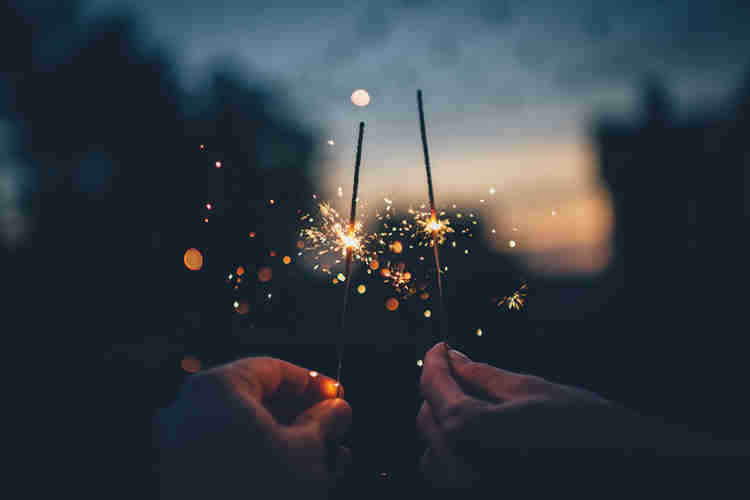Welcome to Parents for Diversity’s new blog. We thought we’d ring in the new year by launching our blog!
Each new year welcomes possibility, hope and adventure. One of the most important aspects of the work we do is to encourage families, communities and schools to reflect on how we can achieve a more inclusive society for our children. Over the year, we are going to share ideas about the various ways we can celebrate diversity and promote inclusion. What we want to commit ourselves to doing, and hopefully to encourage all our readers to do, is to not only reflect on how, or why, we want a diverse and inclusive society, but about what steps we can take to achieve this vision.
A few years ago, on my way to work, I drove by a local mosque and saw that someone had spray painted swastikas and other hate symbols on the doors of the mosque. I continued driving and passed a church close by, and saw swastikas and the N-word on the exterior walls of the building. I was horrified that this was what had become of our city, our nation’s capital. I was also upset that these hateful acts were persisting. Earlier that week, swastikas were spray-painted on the door of a synagogue and anti-Semitic graffiti splashed over the building’s brick walls.


I stopped at a coffee shop in the neighbourhood. As I waited for my half-caff, I mentioned to a patron what I had just seen. She was shocked and then apologized to me. I think that, for her, the N-word spray painted on the church was directed specifically to the black community. It was our problem, not everyone else’s. I observed that the hate graffiti had taken place within this neighbourhood, less than a kilometre away from where we were pouring cream into our coffees. As I left the coffee shop, I told her I was sorry this was happening to her neighbourhood, and that no matter where these hateful acts took place, they affected all of us.
As I continued to work that morning, the images of the swastikas still lingering in my mind, I came across a person along the banks of the Rideau River doing jumping jacks. It quickly dawned on me that she was warming herself up after a night of sleeping outdoors. The sleeping bag and meagre belongings heaped on the park bench confirmed this for me. It was mid-November and the morning frost had hardened the ground.
My heart sank for this homeless woman, with layers of torn clothes jumping to keep her body warm. I walked past her, and stopped. I felt paralyzed. Should I turn back and offer her help? What could I possibly do or say? I could offer her assistance? I thought of how unsafe it would be for someone to survive a night outside on a park bench. I contemplated what to do. But then I just continued walking on my way to work.


That moment stayed with me for a long time because I had just done what I felt no one else was doing about the hate graffiti in Ottawa. I made it someone’s else’s problem. I dismissed the woman’s homelessness as a problem for someone else to fix. Somewhere in my mind, I thought there were shelters where she could go, people who could help her. I didn’t know how to help her. I didn’t even try.
We tend to feel helpless when there are so many social injustices around us. Or we feel that nothing we do can possibly make things better because the problems are so grave and so much bigger than us. Sometimes, it is easier for us to dismiss the suffering of others because we believe that someone else is there to help them, that there are organizations for these kinds of people and problems.
While it is hard and impractical to internalize all the world’s problems, I also believe that we are all so interconnected that our actions or lack therefore affect not just others, but ultimately us.
What would I have done differently that morning when I saw the homeless woman? I still regret that I didn’t turn around and offer to help her, ask her what she needed, make a donation to, or volunteer at a local shelter. But it dawned on me that I have a responsibility to help anyone who is in need. I don’t need to start a revolution. I do believe that small gestures can make ripple effects that will lead to change. What is challenging, especially in a world where populism and division are becoming more common place, is that complacency and indifference can be just as dangerous as the acts of intolerance and bigotry.
A 17-year-old boy was eventually charged in relation to the racist graffiti spray-painted on the churches, mosques and synagogues. Rev. Anthony Bailey of Parkdale United Church, one of the affected churches, spoke about using a restorative justice approach to dealing with the accused youth. Rev. Bailey believes in forgiveness and that, “[i]t has to do with an understanding (of) our Christian teaching around loving neighbour, loving enemy, reaching out in love.” His words are impactful and remind me of the simple, yet profound ways in which we can provoke change.
I often say to my children that we get to choose the type of world in which we want to live and the type of people we want to be. That requires action on our part to take steps, small or large, to make a change. Hopefully 2019 is the year we can continue on our journey.



